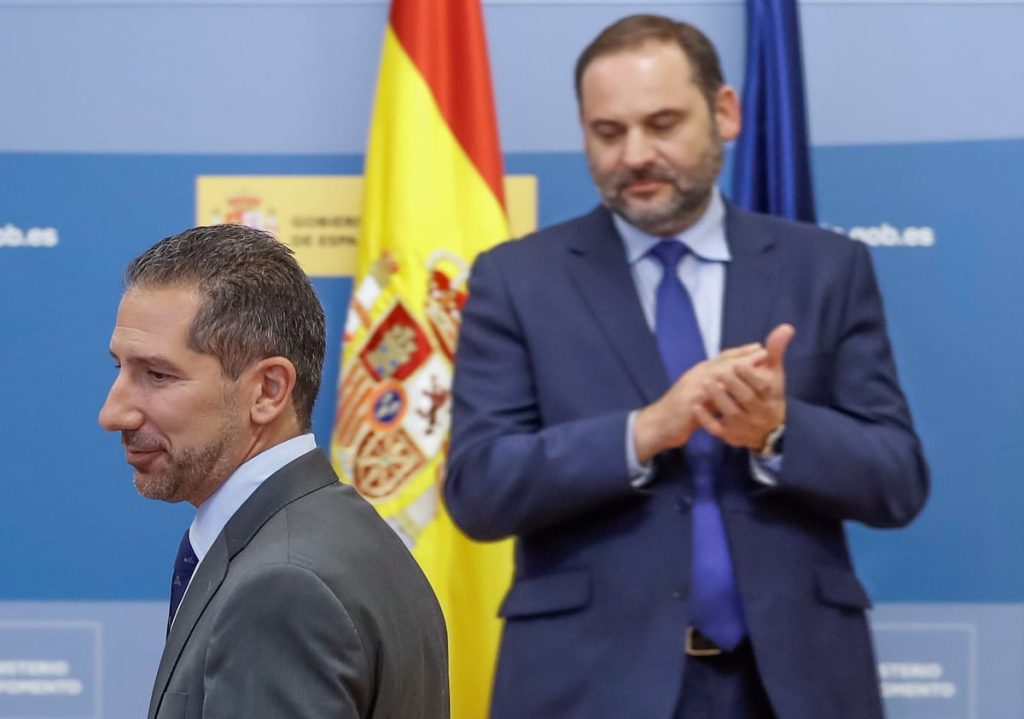The Koldo case, an open judicial summary in the National Court for the alleged illegal commission scheme in the purchase of medical supplies by the Administration during the pandemic, involves Koldo García, a former advisor to José Luis Ábalos, the former socialist Minister of Transport. The Anticorruption Prosecutor’s Office has asked Judge Ismael Moreno, who is leading the case, to summon Jesús Manuel Gómez García, current Undersecretary of the Ministry of Transport; Michaux Miranda, current Director General of Human Resources at the public entity Adif; and Álvaro Sánchez Manzanares, former Secretary General of the public entity Puertos del Estado, for questioning as suspects. The prosecutor’s office alleges that these three high-ranking officials may have pressured those responsible for awarding contracts for mask supplies, ensuring that the contract would go to Solutions de Gestión, the company at the center of the alleged scheme.
The request from the Anticorruption Prosecutor’s Office comes after the Guardia Civil’s Central Operative Unit (UCO) sent a report to the National Court analyzing emails exchanged by ministry officials, pointing to the alleged involvement of these three officials. The UCO highlighted that Undersecretary Gómez García lied to investigators when questioned as a witness on February 21. The investigators found that he played a key role in securing contracts for Adif and Puertos del Estado with the company at the center of the scheme, contradicting his earlier claims. Anticorruption emphasizes the connections between these officials and Koldo García, implicating them further in the alleged scheme.
Regarding Sánchez Manzanares, the Guardia Civil’s report concluded that he received instructions from Koldo García, showing a close relationship between them through phone calls and emails. Anticorruption now highlights his significant role in contracting Solutions de Gestión, including sharing information with one of the shadowy leaders of the company. As for Miranda, who still holds the same position at Adif, the prosecutor’s office claims he played a key role in the procurement process, overlooking potential risks in contracting Solutions de Gestión over another company that presented a competitive offer. The prosecutor’s office suggests that Miranda received instructions to contract with Solutions de Gestión, potentially constituting the crime of influence peddling.
The judge overseeing the case has requested the Anticorruption Prosecutor’s Office to weigh in on a recent request from the European Prosecutor’s Office to take over the investigation. If the European Prosecutor’s Office assumes control, the case would no longer involve the national judiciary, potentially limiting the participation of other parties like political parties and independent prosecutors. However, the decision on whether to transfer the case to the European Prosecutor’s Office rests with the judge after he receives input from the national prosecutor’s office. The European Prosecutor’s Office argues that as the corruption scheme spanned different regions and possibly involved EU funds, their jurisdiction would be more suitable for the investigation.
Overall, the Koldo case highlights alleged corruption in the procurement process of medical supplies during the pandemic, implicating high-ranking government officials and casting a shadow over the transparency of contract awards. The ongoing legal proceedings will determine the extent of involvement and potential criminal responsibility of those accused in the case. The decision on whether to transfer the case to the European Prosecutor’s Office will have significant implications for the future of the investigation and the handling of corruption cases involving EU funds.


